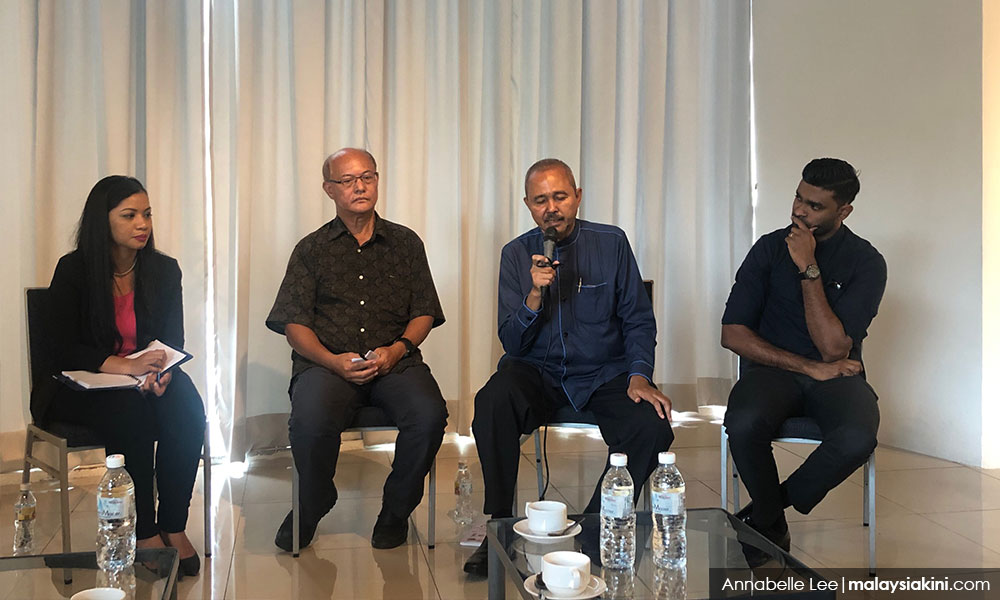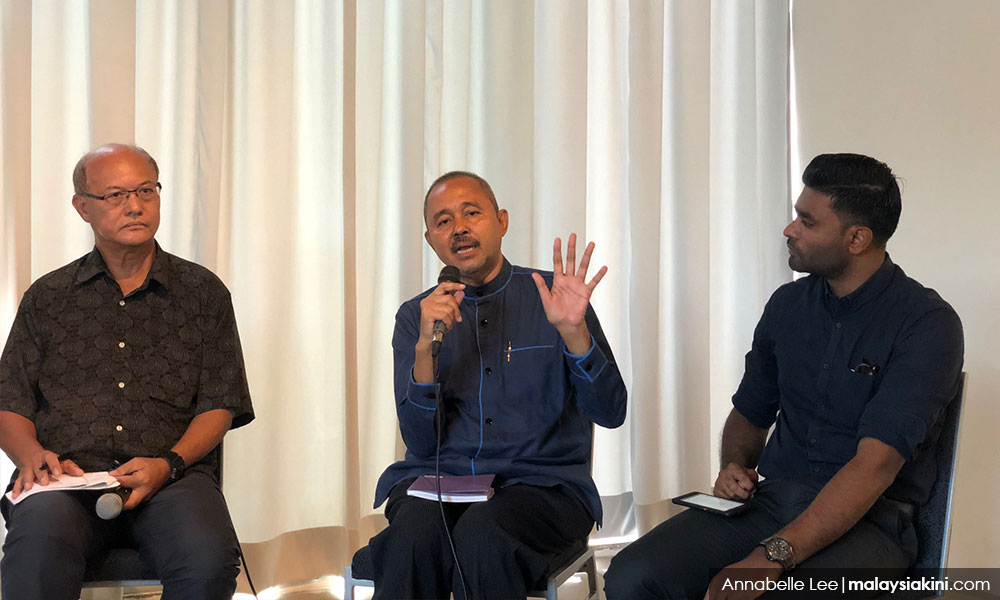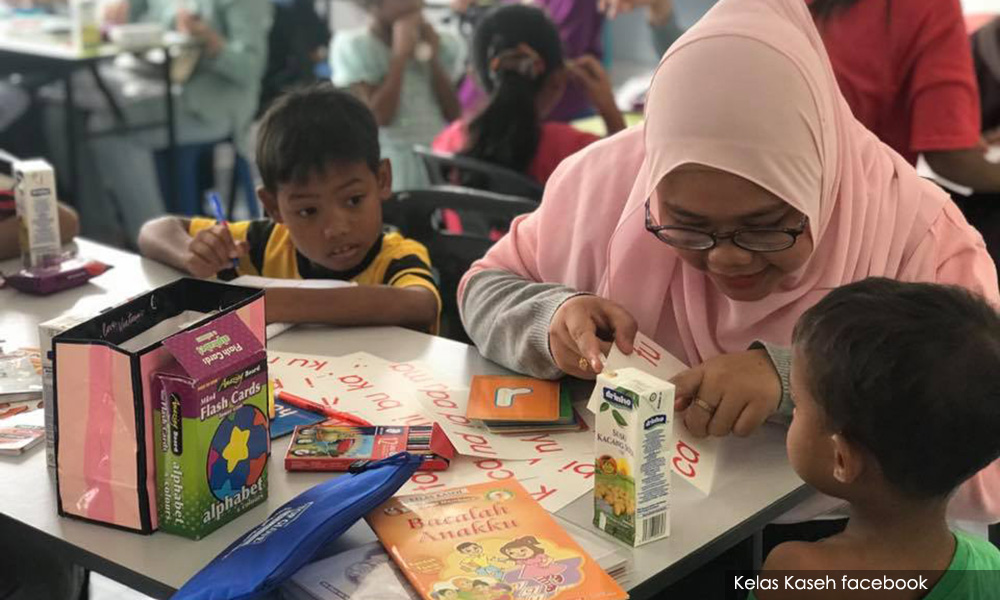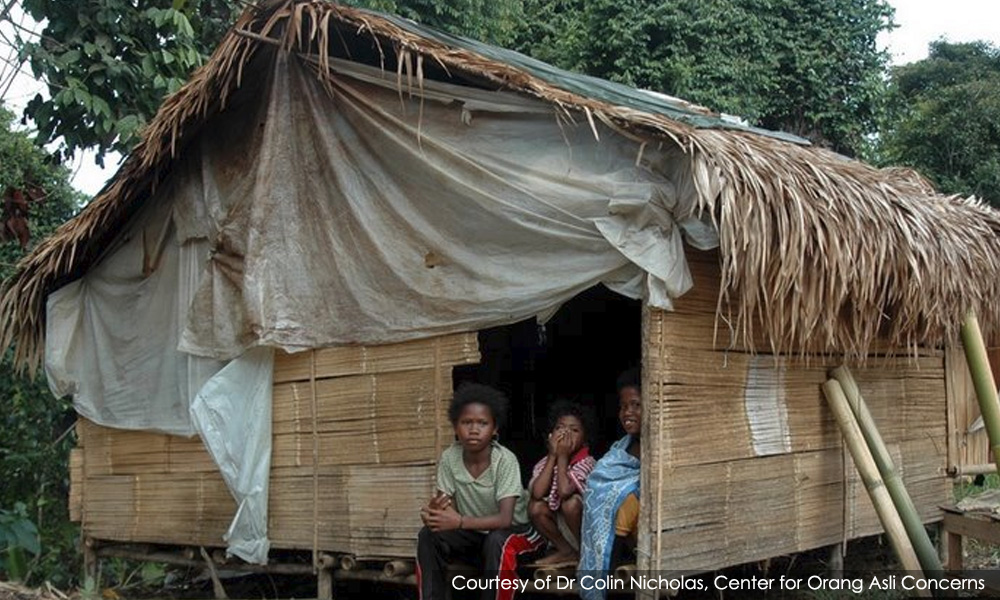
Bullying, discrimination and the fear of losing their identity are among the push factors causing Orang Asli children to drop out of school, a forum heard today.
According to the Department of Orang Asli Development (Jakoa), secondary school dropout rates in the community has been on the rise and was 51.06 percent in 2018.
All panellists discussing “Orang Asli and Schooling” this morning shared how indigenous children were being called derogatory names and even physically bullied in school due to their identities.
Teacher Samuel Isaiah, who works at Orang Asli primary school SK Runchang in Pahang, said this had caused some of his former students to quit school.
“Some of my kids (students), when they leave Year 6 and they go to secondary school, they drop out of school very quickly.
“Most of the time when I ask them (why), bullying would be one of the main things that they bring up. They are bullied because of their race - name-calling, even physical bullying and things like that,” he said at the event which was held at Taylor’s University Lakeside Campus in Subang Jaya.
Fellow panellist and teacher Jenita Engi recalled how she had been called names by her schoolmates due to her Temuan Orang Asli heritage and appearance.

Jakoa director-general Juli Edo (photo, middle), who is Semai Orang Asli, had a similar experience.
“I was bullied. When I was in school, people used to call me Sakai bodoh (stupid Sakai).
“But that made me want to become smart so that they could call me sakai pandai (smart Sakai). In the end, I did indeed become a smart Sakai.
“After I studied the meaning of Sakai, (they) were actually my country people [...] it was nothing to be ashamed of,” he said.
Prior to assuming his present role, Juli had been an anthropologist at Universiti Malaya and was the first Orang Asli in the country to earn a PhD.
Sakai, sometimes used as a derogatory slur against those perceived to be backward, is the name of an Orang Asli tribe.
Trust issues
The panellists sought to clarify the misconception that Orang Asli parents were preventing their children from continuing school as they were unaware of the importance of education.
For one, Jenita said bullying was causing Orang Asli parents to worry about the safety of their children should they be sent to faraway schools where they would be an ethnic minority.
Parents also distrusted the school system, perceiving it to be discriminatory, ethnocentric and aimed at converting their children to Islam.
Juli specifically called out the Community Development Department (Kemas), which is responsible for providing the Orang Asli with pre-school education.

“Kemas is in charge of education but their agenda seems different, it seems to be assimilation at an early stage. This is causing parents to not want to send their children to pre-school.
“[...] Also, Orang Asli beliefs are not recognised as a religion so people think Orang Asli need to be given a religion. And that religion is the official federal religion.
“Orang Asli parents are aware of the importance of education but they also want their children to preserve their Orang Asli identity,” he said.
“Remove this assimilation programme,” Juli stressed.
Cultural inclusivity
Stigmatisation by teachers and a “blanket” school system that failed to accommodate their needs further exacerbated problems faced by Orang Asli children.
University of Nottingham assistant professor Suria Selasih Angit suggested that teachers be equipped with “cultural sensitivity” training, especially those assigned to Orang Asli schools.
This would allow them to understand the local customs and complexities of their students.
“Teachers who teach at Orang Asli schools are not prepared for whatever they are facing now. So we can’t 100 percent blame the teachers.
“[...] Culture and curriculum have to sync otherwise there will be no meaningful learning,” she said.
Juli concurred, adding that education policies needed to be more inclusive and student-centred.
“What the government is implementing now is a blanket policy and that is the problem. This ‘one shoe fits all’ approach can’t be done.
“Rural schools which have 100 percent Orang Asli students need to be given different treatment,” he said.

No more assimilation agenda
In attendance today was National Unity and Social Harmony minister P Waythamoorthy, who assured afterwards that the government was paying attention to education barriers faced by the community.
“I have also personally heard this when I visited various Orang Asli kampungs, that (parents) are reluctant to send their kids to schools due to conversion.
“[...] I think the new government is more open to listening to criticism and if there are any shortcomings on our part, on the part of the government’s previous ways of doing things, we have to change those things.
“Surely, assimilating the Orang Asli is not part of this current government’s agenda,” he said when asked by the media.
Today’s forum was organised by the Taylor’s University School of Education; the Universiti Malaya Department of Anthropology and Sociology in partnership with DEEP Network Malaysia.
It is part of a series of discussions centred around the theme Safe Schools: Accessibility, Protection, Care and the Empowerment of Children in Malaysia. - Mkini



No comments:
Post a Comment
Note: Only a member of this blog may post a comment.